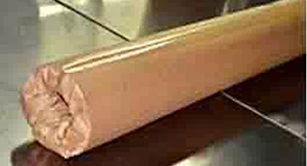Aug . 16, 2024 16:22 Back to list
Exploring Notable Alloy Mesh Materials and Their Applications in Industry
Exploring the World of Famous Alloy Mesh A Blend of Strength and Versatility
In the realm of materials engineering, alloys play a crucial role in creating products that are not only strong but also versatile enough to be used across various industries. Among the various forms of alloys, alloy mesh has emerged as a significant material due to its unique properties and applications. This article delves into the characteristics, applications, and advantages of famous alloy mesh materials.
What is Alloy Mesh?
Alloy mesh refers to a type of woven or welded material made from metallic alloys. These meshes are crafted for specific applications depending on the alloy’s properties, such as corrosion resistance, tensile strength, and thermal conductivity. Typically, alloy meshes are composed of metals like stainless steel, aluminum, titanium, or nickel, each contributing different characteristics to the final product.
Characteristics of Alloy Mesh
1. Corrosion Resistance One of the standout features of many alloy meshes, especially those made from stainless steel, is their exceptional resistance to corrosion. This property makes them ideal for applications in harsh environments, such as marine and chemical processing.
2. Strength-to-Weight Ratio Alloy meshes offer a superior strength-to-weight ratio compared to traditional materials. This characteristic is particularly advantageous in aerospace and automotive industries, where reducing weight while maintaining structural integrity is critical.
3. Versatility and Flexibility Alloy mesh can be tailored to meet specific requirements, making it versatile for various applications. It can be manufactured in different mesh sizes, thicknesses, and coatings, allowing for customization based on the needs of the application.
4. Thermal and Electrical Conductivity Some alloy meshes exhibit excellent thermal and electrical conductivity, making them suitable for uses in electronic and thermal management systems.
5. Aesthetic Appeal In addition to their functional properties, alloy meshes are also appreciated for their aesthetic qualities. They can provide an attractive, modern finish to architectural projects while serving practical purposes.
famous alloy mesh

Applications of Alloy Mesh
Alloy mesh finds its application in numerous sectors, including
- Construction and Architecture Alloy mesh is widely used in building facades, balustrades, and decorative screens, offering both safety and aesthetic appeal. Its durability ensures longevity even in external applications.
- Aerospace Industry The lightweight and high-strength characteristics of alloy mesh make it an integral part of various aerospace components, including filters, screens, and structural supports.
- Filtration Systems Alloy meshes are extensively used in filtration systems due to their fine mesh sizes and high resistance to clogging. They are employed in water treatment plants, chemical processing units, and food industry applications.
- Medical Fields In the medical sector, alloy meshes are utilized in surgical instruments, implantable devices, and filters, where sterility and strength are paramount.
- Automotive Applications Alloy mesh is often used in automotive components, such as catalytic converters and exhaust systems, where it helps manage emissions and improve performance.
Conclusion
The world of alloy mesh is a fascinating blend of innovation and practicality, responding to the ever-evolving demands of modern industries. Its unique characteristics make it an essential component in various applications, driving forward advancements in engineering and design. As technology evolves, the potential for new alloys and mesh configurations will continue to diversify, offering even greater possibilities for addressing future challenges across numerous sectors. Whether for high-performance applications or aesthetic enhancements, alloy mesh proves to be a remarkable material worth exploring.
share
-
CE Certified 250 Micron SS Mesh: Precision & Durability
NewsAug.15,2025
-
CE Certified 250 Micron Stainless Steel Mesh - Durable & Precise
NewsAug.14,2025
-
Precision CE Certified 250 Micron Stainless Steel Mesh
NewsAug.13,2025
-
CE Certified Metal Fine Mesh & Screen Fabric | Top Quality
NewsAug.12,2025
-
Premium CE Certified 250 Micron Stainless Steel Mesh
NewsAug.11,2025
-
CE Certified Stainless Steel Wire Mesh for Screen Printing
NewsAug.10,2025

